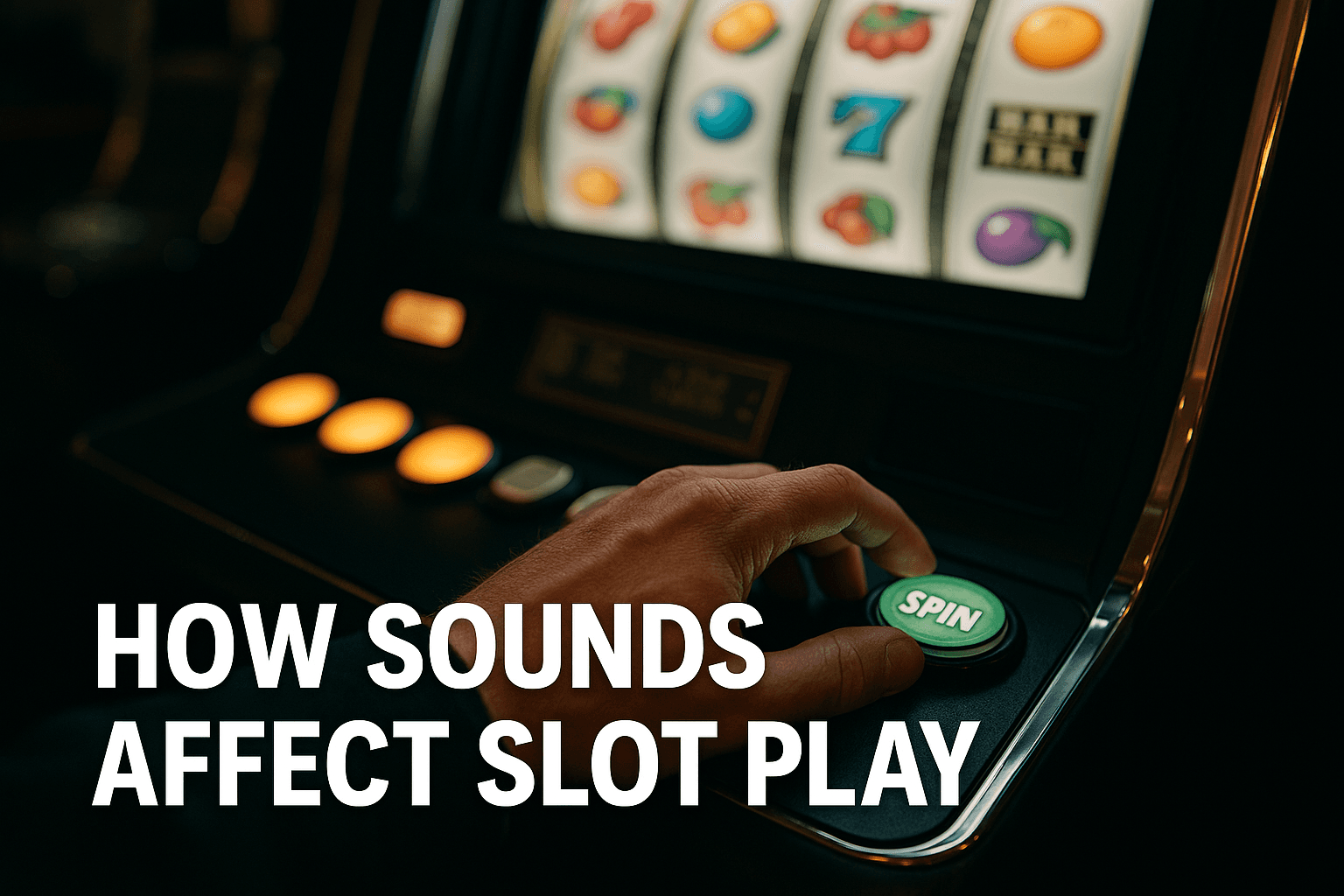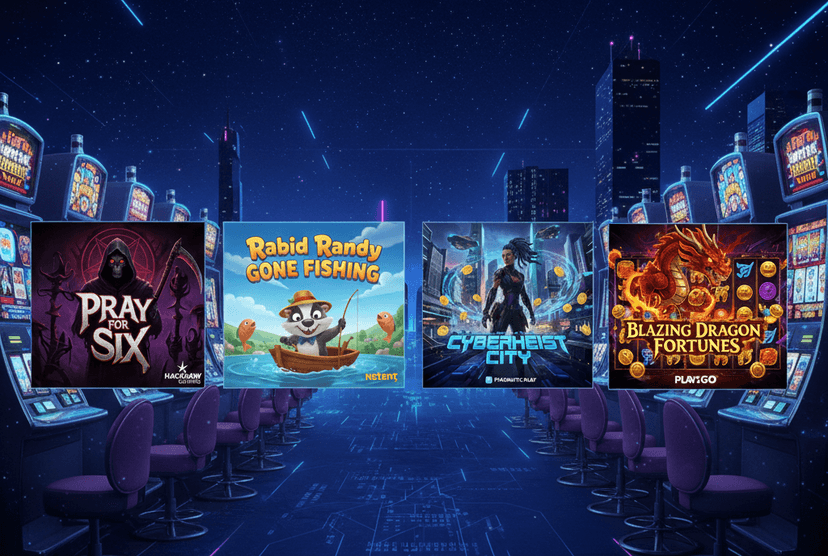Slot Audio Design: Why What You Hear Changes How You Play

When we spin a slot, we don’t just watch the reels—we listen. The clicks, jingles, and rising tones that fill each session are more than decoration. They’re part of the psychology of play, designed to keep us engaged, informed, and emotionally tuned in. In this article, we’ll explore how audio design in online slots shapes our attention, mood, and even risk-taking behavior.
What Makes Slot Sound Design So Powerful
Slot sound design blends music theory, behavioral psychology, and technology. Every spin, win, or near-miss has its own sound cue. These aren’t random; they’re structured around emotional pacing—what researchers call “reward anticipation loops.”
In modern online slots, sound cues act as a feedback system. A short win jingle rewards attention, while silence signals loss and prompts the next spin. The rhythmic cycle of tension and release mirrors how the brain reacts to small, frequent rewards.
The Psychology Behind Slot Audio
How Sound Triggers Emotion
Our brains connect sound and emotion faster than visuals. High-pitched chimes can make small wins feel larger, while deep bass notes add tension. Studies in game psychology show that auditory feedback increases dopamine release—the same chemical linked to excitement and motivation.
The Illusion of Control
Sound can also make players feel more in control. When pressing “spin” produces a satisfying click or beat in sync with the reels, it reinforces agency. The feedback tells the brain: you caused that reaction, even if the outcome is random.
Anatomy of Slot Audio: From Spin to Win
| Slot Event | Typical Sound Cue | Player Response |
|---|---|---|
| Spin start | Rising pitch or soft click | Focus and anticipation |
| Reel stop | Sequential ticks | Attention maintained |
| Win | Bright chord, upbeat melody | Reward satisfaction |
| Near-miss | Rising tension sound | Continued engagement |
| Bonus trigger | Distinct fanfare | Emotional peak |
These patterns follow principles from interactive sound design—a field shared with video games and UX design. Each sound is timed to reinforce behavior and rhythm without overwhelming the player.
How Music Style Shapes Player Experience
Different slot genres use distinct audio signatures to match their themes and target audiences:
- Classic fruit slots: Retro electronic tones that evoke nostalgia.
- Adventure slots: Orchestral or cinematic soundtracks to heighten immersion.
- Mythology or fantasy themes: Layered vocals, drums, or ambient echoes to create depth.
- Modern branded slots: Licensed tracks or remixes to attract fans of pop culture.
Developers use adaptive music systems that adjust tempo and intensity as the game progresses—speeding up during bonus rounds, then slowing after a big win to reset emotional balance.
The Role of Silence and Negative Space
Silence is rarely accidental. It signals rest, loss, or transition. After a winning sound burst, a brief pause helps the brain reset reward anticipation. This controlled use of quiet moments prevents fatigue and prepares the player for the next round.
Game studios like NetEnt and Pragmatic Play use silence strategically, testing player reactions to ensure that pacing feels natural but never dull.
How Audio Affects Risk and Bet Behavior
Reinforcing Wins Over Losses
Players tend to remember sounds more than visuals. Even small wins are accompanied by energetic jingles, while losses are muted. This creates what researchers call a “loss-disguising effect,” where players perceive themselves as winning more often than they actually are.
Encouraging Longer Sessions
Continuous auditory feedback keeps the brain in a loop of engagement. Familiar sound patterns become cues for comfort and habit, making players more likely to continue spinning—even without conscious motivation.
Modern Technology in Slot Sound Design
Advances in digital sound engineering have allowed developers to create layered, dynamic effects that react to player choices in real time. Features include:
- Spatial audio: Stereo effects that make reels feel physically “around” the player.
- Procedural sound generation: Real-time synthesis instead of static audio files.
- Psychoacoustic mixing: Balancing frequencies to trigger emotional focus without overwhelming.
These techniques align with the growing trend of immersive iGaming experiences, where sound, animation, and haptic cues combine to simulate a live environment.
Ethical Considerations in Sound Design
While audio enhances entertainment, it also raises ethical questions. Overuse of rewarding sound cues can blur the line between excitement and manipulation. Responsible developers now test for balance—ensuring feedback doesn’t promote addictive behavior.
Regulatory bodies in the UK and Europe have begun reviewing how auditory reinforcement affects player well-being. Some have proposed limits on excessive win sounds or volume spikes during play.
The Future of Slot Sound Design
The next era of online slots will integrate adaptive audio powered by AI. Systems can adjust sound based on player pace, session length, and emotional state. Expect:
- Personalized soundscapes matching user preferences
- Cross-device audio continuity between desktop and mobile
- Greater emphasis on accessibility through audio cues
As sound technology evolves, it will remain one of the most subtle yet powerful tools in shaping how we experience online gaming.
FAQ
Why do online slots use so many sound effects?
Because sound provides instant feedback and emotion. It helps players recognize wins, losses, and special features while maintaining engagement.
Do sound effects make slots more addictive?
They can increase engagement, but not necessarily addiction. When used responsibly, audio enhances enjoyment. Excessive cues, however, can create misleading reward signals.
Can I mute slot sounds without affecting gameplay?
Yes. Muting doesn’t change outcomes or odds—it only reduces sensory feedback. Many players prefer playing with moderate sound for immersion.
How do developers choose slot music?
Teams select or compose tracks that match the game’s theme and pacing. Audio engineers often test multiple versions before release.
Are slot sounds random or scripted?
They’re scripted and timed to specific events, such as spins, wins, and bonuses, using adaptive systems to match gameplay dynamics.









